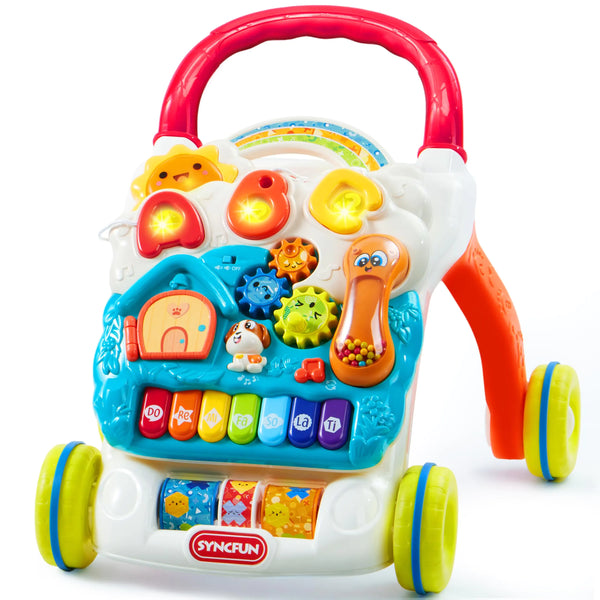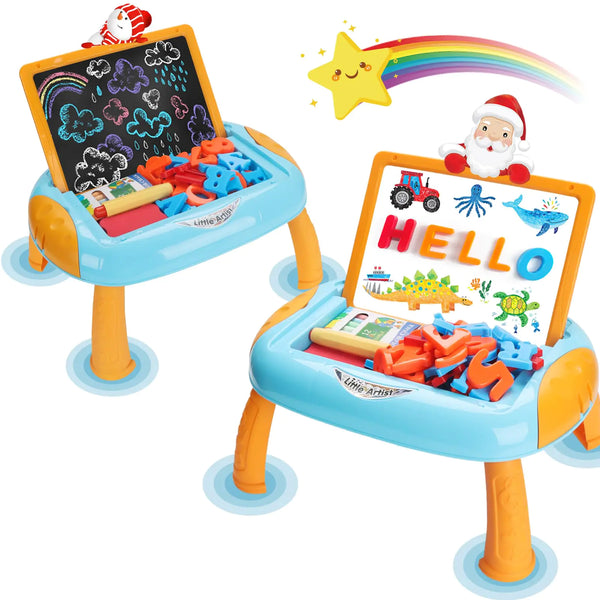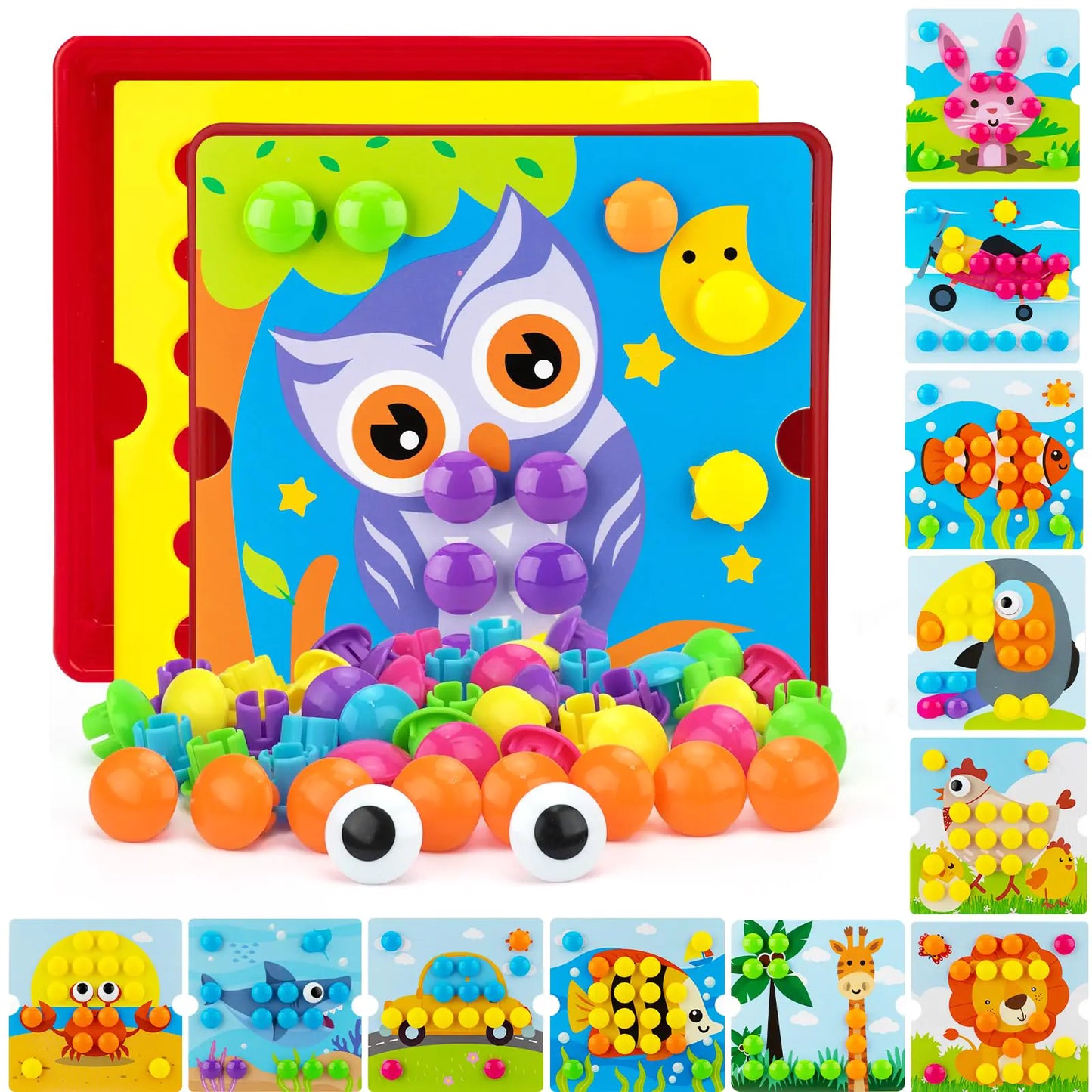In today's digital age, educational video games have emerged as a powerful tool to enhance learning experiences. By combining entertainment with education, these games engage students in a way traditional methods often cannot. This article explores the various facets of educational video games, from their benefits and integration into classrooms to future trends and parental roles.
Key Takeaways
- Educational video games make learning engaging and enjoyable for students.
- Choosing the right game involves considering age-appropriateness, curriculum alignment, and a balance between fun and learning.
- Teacher training is essential for the effective integration of video games into the classroom.
- Educational games can significantly boost critical thinking, problem-solving skills, and real-world application of knowledge.
- Parents play a crucial role in setting boundaries and ensuring a balanced approach to educational gaming.
The Magic of Educational Video Games for Learning

Educational video games have truly revolutionized the way kids learn today. These games are not just about fun; they are powerful tools that blend entertainment with education, making learning an engaging and dynamic process. Innovative educational video games enhance learning in classrooms by integrating fun and interactive elements. Role-playing, simulation, and adventure games boost creativity, problem-solving, and critical skills.
Choosing the Right Educational Video Games

Age-Appropriate Content
When selecting educational video games, it's crucial to ensure the content is suitable for your child's age. Games designed for older kids might include complex themes or advanced vocabulary that could be overwhelming for younger children. Always check the age rating and read reviews to make sure the game is a good fit for your child's developmental stage.
Aligning with Curriculum
To maximize the educational benefits, choose games that align with your child's school curriculum. This ensures that the skills and knowledge gained from the game will complement what they're learning in class. Look for games that cover subjects like math, science, and language arts, and make sure they adhere to educational standards.
Balancing Fun and Learning
The best educational games strike a balance between fun and learning. If a game is too focused on education, it might feel like just another homework assignment. On the other hand, if it's too focused on fun, it might not offer much educational value. Look for games that are engaging and interactive, making learning an enjoyable experience for your child.
Choosing the right educational video game can make a significant difference in your child's learning journey. By considering age-appropriateness, curriculum alignment, and the balance between fun and learning, you can find games that are both enjoyable and educational.
Integrating Video Games into the Classroom

When it comes to integrating video games into the classroom, teacher training is crucial. Teachers need to be well-versed in the educational value of these games and how to effectively incorporate them into their lesson plans. This ensures that the games are used to enhance learning rather than distract from it.
Video games should complement, not replace, traditional teaching methods. They need to be integrated in a way that aligns with the overall educational goals and curriculum. This means selecting games that reinforce the subjects being taught and provide a meaningful learning experience.
It's essential to monitor students' progress while they are using educational video games. This can be done through in-game analytics or teacher observations. Monitoring helps in understanding how well the students are grasping the concepts and if any adjustments are needed.
Integrating video games into the classroom can be a game-changer, but it's important to select the right games for the right reasons.
Boosting Critical Thinking with Educational Games

Games that Challenge the Mind
Educational games are a fantastic way to boost critical thinking skills in kids. These games often present complex problems that require players to think deeply and strategically. Choosing the right game can turn learning into an exciting challenge that keeps kids engaged and motivated. Puzzle-based games, for example, are excellent for enhancing pattern recognition and logical reasoning.
Encouraging Problem-Solving
One of the best things about educational games is how they encourage problem-solving. Kids are not just passively absorbing information; they are actively engaging with the material. This active participation helps them develop essential problem-solving skills that are crucial for real-world situations. Games that require players to navigate mazes or solve puzzles are particularly effective in this regard.
Real-World Applications
Educational games don't just teach academic skills; they also have real-world applications. For instance, strategy games can help kids learn about resource management and planning. These skills are not only useful in school but also in everyday life. By integrating these games into their learning routine, kids can develop a well-rounded skill set that prepares them for future challenges.
Educational games actively develop critical thinking skills, offering an interactive, engaging, and enjoyable approach to enhancing cognitive abilities. They prepare students for the complexities of the modern world.
Enhancing Retention and Understanding

Interactive Learning
One of the coolest things about educational video games is how interactive they are. When kids actively participate in the learning process, they are more likely to remember and apply what they've learned. This is especially true for subjects like math and science, where understanding foundational concepts is crucial for advanced learning.
Memory Boosting Techniques
Educational games often require kids to recall information to solve problems or progress to the next level. This active recall process reinforces their memory and helps them retain the knowledge they acquire. Immediate feedback on mistakes and explanations on how to correct them also play a significant role in boosting memory.
Subjects that Benefit Most
While all subjects can benefit from game-based learning, some stand out more than others. Here's a quick list:
- Math: Games that involve puzzles and problem-solving can make math concepts more digestible.
- Science: Interactive simulations can help kids understand complex scientific principles.
- Language Arts: Story-based games can improve reading comprehension and vocabulary.
The interactive nature of video games aids in deeper understanding and retention of information. When students actively participate in the learning process through gaming, they are more likely to remember and apply what they've learned.
The Role of Parents in Educational Gaming

Setting Boundaries
As a parent, it's crucial to set boundaries when it comes to educational gaming. While these games can be incredibly beneficial, too much screen time can have adverse effects. I always make sure to establish clear rules about when and how long my kids can play. This helps them understand the importance of balance and ensures they get the most out of their gaming experience.
Choosing Quality Games
Selecting the right educational games can be a game-changer. I look for games that are not only fun but also educational. Reading reviews, checking ratings, and even playing the game myself helps me make an informed decision. Quality games can make learning enjoyable and effective for my kids.
Encouraging Balanced Play
Encouraging balanced play is essential. I make it a point to mix educational games with other activities like outdoor play, reading, and family time. This not only keeps things interesting for my kids but also promotes a well-rounded development.
Parental involvement and support create a positive learning environment and enhance the educational benefits of the games.
By being actively involved, discussing the concepts covered, and encouraging reflection, I can reinforce the educational content and extend the learning beyond the game itself.
Future Trends in Educational Video Games

The world of educational gaming is changing fast, and it's getting more exciting every day. Looking ahead, video games in education, especially in STEM subjects, are set to play a bigger role. Let's delve into these developments:
Virtual Reality in Education
Imagine your child exploring ancient civilizations or diving deep into the ocean, all from the comfort of their classroom. Virtual Reality (VR) is making this possible. VR can create immersive learning experiences that are both engaging and educational. It's like taking a field trip without leaving the room!
AI and Personalized Learning
One of the most exciting trends is the use of Artificial Intelligence (AI) to personalize learning. Future games will better match how each student learns and at what speed. This means teachers can help students in a way that suits them best. AI can adapt to your child's learning style, making education more effective and enjoyable.
Gamification of Traditional Subjects
Gamification is all about making learning fun by turning traditional subjects into interactive games. This approach can make even the most boring subjects exciting. Imagine math problems becoming puzzles or history lessons turning into adventure quests. Gamification can make learning feel like play, which is a win-win for both kids and parents.
The future of educational video games is bright, with endless possibilities for unleashing creativity and enhancing learning experiences.
Educational Games Beyond the Classroom

Educational video games aren't just for the classroom. They can be a fantastic way for kids to learn while on the move. Whether it's a long car ride or waiting for an appointment, these games can turn idle time into productive learning moments. Portable learning tools like tablets and smartphones make it easy to access educational content anywhere.
Playing educational games as a family can be a great bonding experience. It not only makes learning fun but also allows parents to be actively involved in their child's education. You can set up a game night where everyone participates in educational games. This can help reinforce what kids learn in school and provide a platform for family interaction.
Many communities are now incorporating educational video games into their learning programs. Libraries, community centers, and after-school programs often have resources and events focused on educational gaming. These initiatives can provide additional learning opportunities outside the home and school, fostering a community of learners.
Educational games offer a unique way to extend learning beyond traditional settings, making education a part of everyday life.
Addressing Concerns About Screen Time

As a parent, I totally get the worry about how much time kids spend in front of screens. It's a big deal, especially when we're talking about educational video games. But here's the thing: balancing screen time with other activities is key. We want our kids to enjoy the benefits of these games without it taking over their lives.
Healthy Screen Time Limits
Setting boundaries is crucial. I like to think of it as a balanced 'digital diet'. Just like we wouldn't let our kids eat candy all day, we shouldn't let them play video games non-stop. A good rule of thumb is to mix screen time with physical activities, homework, and family time. This way, they get a bit of everything.
Balancing Physical and Digital Play
It's all about balance. Encourage your kids to play outside, join a sport, or even just take a walk. Physical activity is essential for their growth and well-being. When they do play video games, make sure it's a part of a well-rounded day. This balance keeps them engaged and prevents digital fatigue.
Recognizing Signs of Overuse
Keep an eye out for signs that your child might be spending too much time on screens. Are they irritable when they can't play? Do they skip other activities to get more screen time? These could be red flags. If you notice these signs, it might be time to reassess their screen time limits.
Remember, the goal is to integrate technology with learning and fun, not let it dominate. A balanced approach ensures that kids benefit from educational games without any negative side effects.
Success Stories: Schools Using Educational Video Games

Incorporating video games into educational settings can be a game-changer, but it's important to select the right games for the right reasons. One school district in California saw a 30% increase in math scores after integrating a popular math-based video game into their curriculum. The engaging and interactive nature of video games can be used for more than just fun; they can also reinforce critical skills.
Teachers have been raving about the benefits of educational video games. One teacher mentioned how these games have transformed their classroom into a dynamic learning environment. "The kids are more engaged and motivated to learn," she said. This change in perspective led to video games slowly being included in educational settings.
Students are also enthusiastic about this new way of learning. One student shared, "I never thought learning could be this fun!" The interactive elements of the games make learning feel like play, which is a huge win for both students and teachers. The evolution of video games from mere entertainment to educational tools has been remarkable.
Creating Your Own Educational Video Game

Creating an educational video game starts with understanding the basics of game design. The key is to balance educational content with engaging gameplay. Think about the core mechanics of your game: Will it be a puzzle game, a strategy game, or perhaps an adventure game? The goal is to make learning seamless and fun.
There are plenty of tools available to help you create your own educational video game. Some popular options include:
- Unity: A powerful game engine that's great for both 2D and 3D games.
- Scratch: Perfect for beginners, especially kids, to learn the basics of coding and game design.
- GameMaker Studio: Another versatile tool that's user-friendly and offers a lot of flexibility.
Once your game is developed, it's crucial to test it thoroughly. Gather feedback from a small group of users, ideally kids within your target age range. This will help you identify any issues and make necessary improvements. Remember, the goal is to create a game that's both educational and enjoyable.
Creating an educational video game can be a rewarding experience, offering a unique way to engage kids in learning. With the right tools and a bit of creativity, you can develop a game that makes education fun and interactive.
Creating your own educational video game can be a rewarding and innovative way to engage young minds. Dive into our comprehensive guide to get started on your journey of game development. For more tips and resources, visit our website and explore the endless possibilities!
Conclusion
In a nutshell, educational video games are a fantastic way to make learning fun and engaging. They not only help students grasp complex concepts but also encourage critical thinking and problem-solving skills. By integrating these games into the curriculum, teachers can create a more interactive and effective learning environment. So, whether it's math, science, or any other subject, educational video games can be a game-changer in maximizing knowledge and making learning an enjoyable experience for students.
Frequently Asked Questions
What are educational video games?
Educational video games are designed to teach specific skills or knowledge through interactive gameplay. They aim to make learning fun and engaging by integrating educational content with entertaining elements.
Why do kids love educational video games?
Kids love educational video games because they combine fun with learning. These games often feature interesting storylines, characters, and challenges that keep children engaged while they learn new concepts.
How can educational video games make learning fun?
Educational video games make learning fun by using interactive and immersive elements such as puzzles, quests, and rewards. These elements motivate students to progress and master new skills while enjoying the process.
What are some examples of popular educational video games?
Some popular educational video games include Minecraft: Education Edition, Duolingo, Prodigy Math Game, and ABCmouse. These games cover a range of subjects including math, language arts, and science.
How do I choose the right educational video game for my child?
To choose the right educational video game, consider your child's age, interests, and learning needs. Look for games that align with their school curriculum and offer a good balance between fun and educational content.
Can educational video games be used in the classroom?
Yes, educational video games can be used in the classroom to enhance traditional teaching methods. Teachers can integrate these games into their lesson plans to reinforce concepts, engage students, and monitor their progress.
How do educational video games boost critical thinking?
Educational video games boost critical thinking by presenting challenges that require problem-solving, strategic planning, and analytical skills. These games often simulate real-world scenarios that encourage students to think critically and make informed decisions.
Are there any concerns about screen time with educational video games?
While educational video games offer many benefits, it's important to monitor screen time to avoid potential negative effects. Setting healthy screen time limits and balancing digital play with physical activities can help mitigate these concerns.
Earn Commission Promoting Educational Toys
If you are a blogger, parenting influencer, teacher, or homeschool creator, you can earn commission by promoting educational toys from WonderKidsToy.
Our affiliate program allows creators to share Montessori toys, STEM toys, and learning toys for kids while earning income from their content.
Joining takes less than a minute.
👉 Apply here:
https://wonderkidstoy.com/pages/join-our-affiliate-program


















